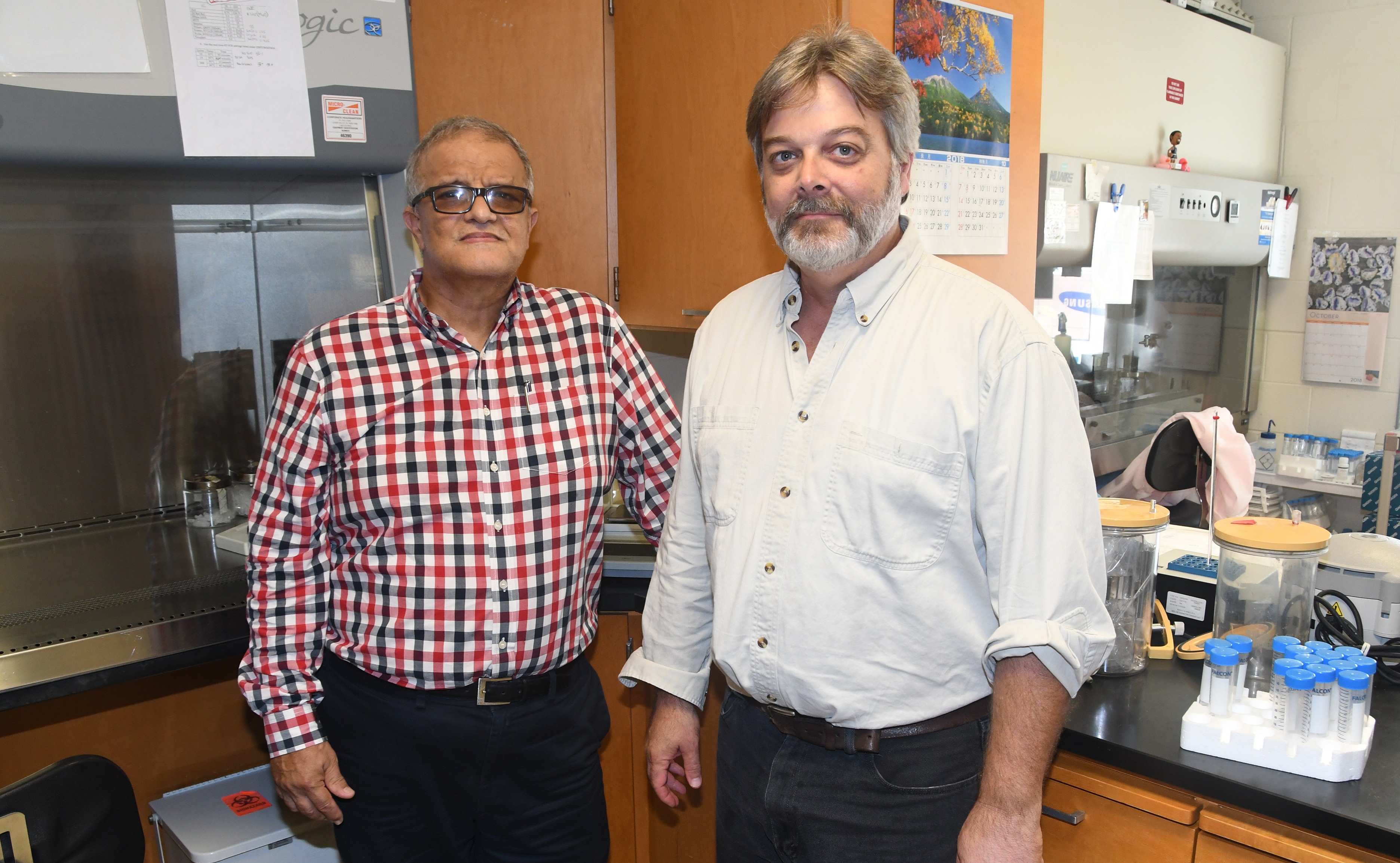
DSU awarded almost $500,000 research grant for laser project
The National Science Foundation (NSF) has awarded Delaware State University a $498,372 research grant fund in support of project that will focus on the capabilities of lasers in killing viruses.
It is a collaborative project involving the University’s Division of Physical and Computational Sciences and its Laboratory of Quantum Optics, the Food Safety Laboratory on campus, along with the Center for Advanced Studies in Photonic Research at the University of Maryland – Baltimore County.
The three-year grant will fund a project entitled “Investigation of Enhancer Free Photo-generated Singlet Oxygen.” The grant comes through the NSF’s HBCU-UP Program, which is part of the agency’s effort to assist Historically Black Colleges and Universities in strengthening their science, technology, engineering and mathematics (STEM) education as well as their research capacity.
Dr. Aristides Marcano, professor of physics, is the principal investigator of the research grant. He said the project will focus on how lasers kill viruses.
“We know that laser can kill viruses, but we want to look at why it does,” Dr. Marcano said.
Specifically, the hypothesis of Dr. Marcano and his researchers is that singlet oxygen can be produced without any catalyst in virus samples. If this is proven by their research, it will be a novel scientific finding and could potentially lay the groundwork for a chemical-free means of sanitizing foods and biologicals.
It could also provide the principles for developing a new low-cost way of conserving and disinfecting food, blood and other pharmaceutical and biomedical products, making them free of viruses and other pathogens.
Equally important, the project will engage Delaware State University students in the research work.

